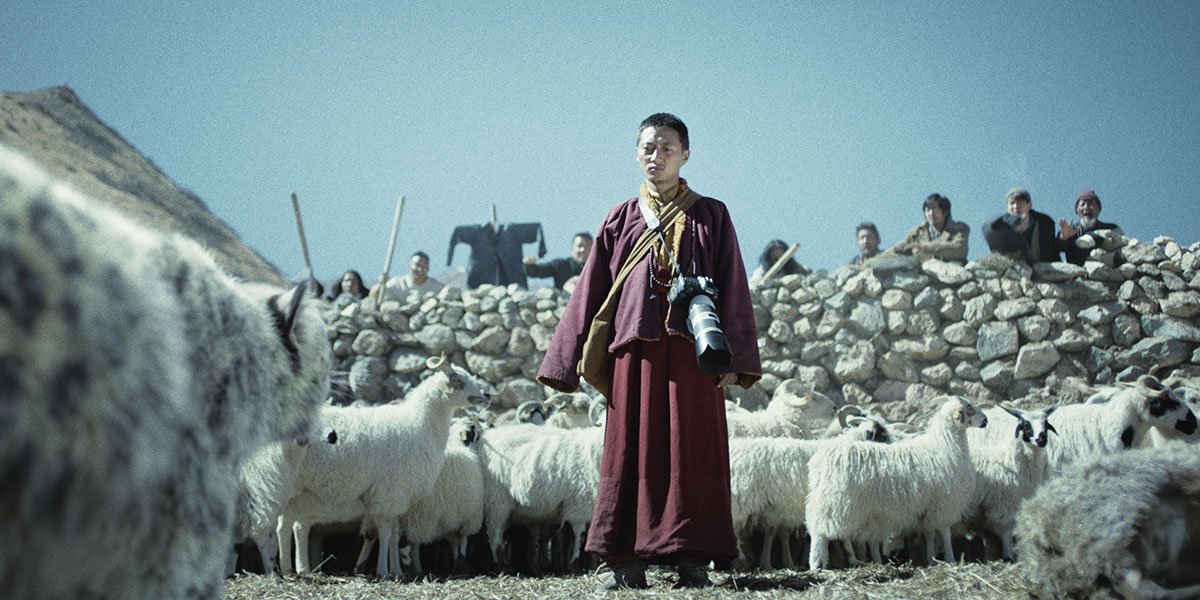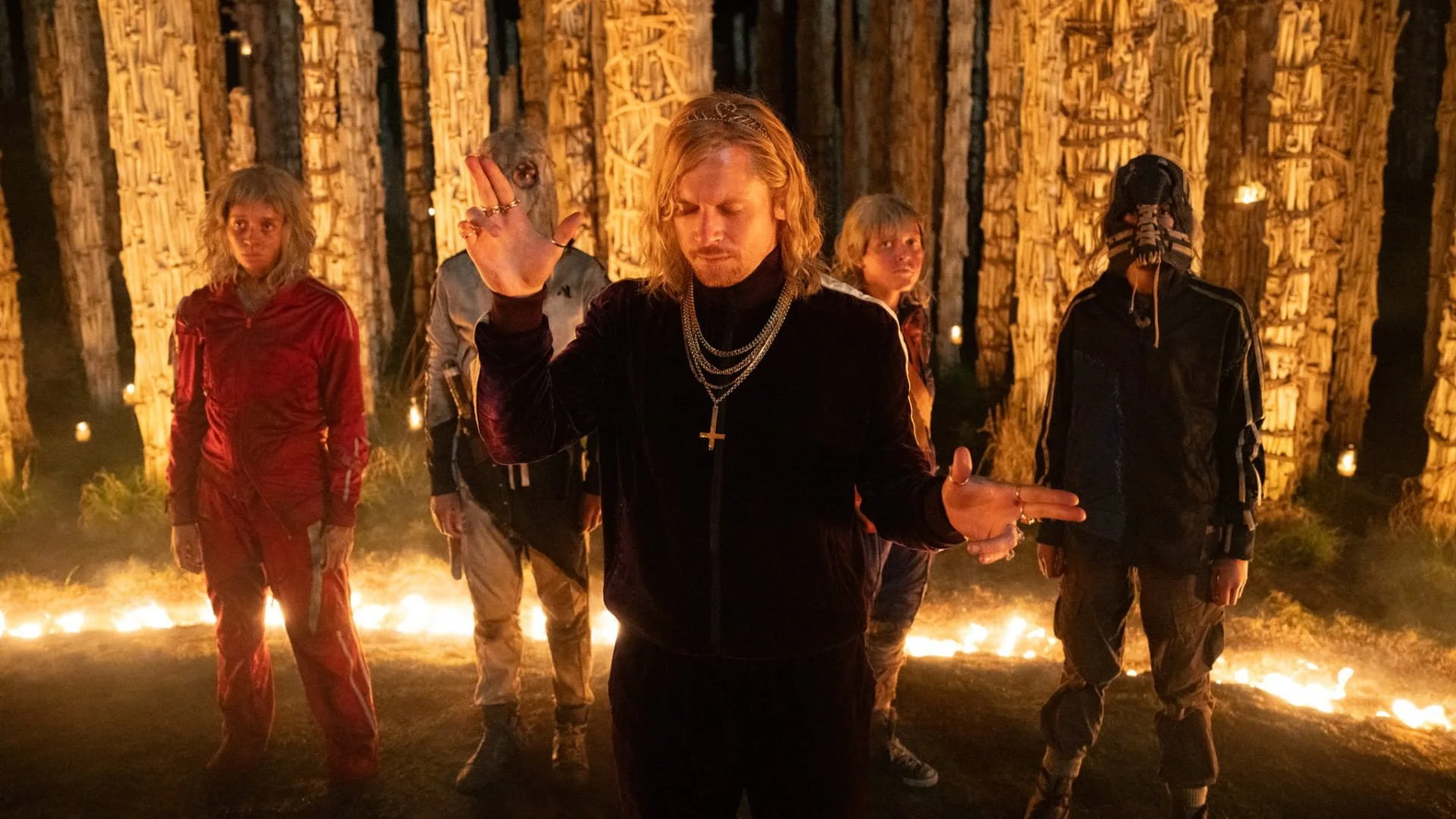TIFF23: Snow Leopard
While it’s tragic that Pema Tseden never lived to see the release of Snow Leopard, it’s almost fitting the film is made by a person who has transcended our mortal coil. Such is the film’s spiritual quality, one where the land and the people and the animals that inhabit it share a pulse that goes beyond material understanding.
Snow Leopard is a mysterious, quiet drama with an intoxicating visual style that makes the Tibetan plateau seem like a magical realm pitched above the world—which it kind of is. The plateau is above 4,000m, only the thin air separating the veil between earth and the heavens. The landscape is beautiful and haunting but harsh, and carving out an existence there takes perseverance. Snow Leopard captures the magical essence of this land, and yet, it doesn’t have even a hint of exoticism in its depiction of the Tibetan plateau. That’s because its depiction comes from a place of familiarity.
The late Pema Tseden was the first filmmaker in China to make films entirely in his native Tibetan language. He was a trailblazer in a sense, but those trails were dependent on straying further into his homeland. The more personal he got, the more radical his films seemed on the world stage, but to him, everything was familiar. Snow Leopard bears the quiet confidence of a person who knows how to capture the truth of the world and the people he’s depicting on the screen without belabouring the point or having to rely on too many plot mechanics or stylistic tics.
The film’s narrative involves a local television crew sent to a ranch in the Tibetan highlands to film a snow leopard that has been trapped in a sheep pen. The head of the crew, Dradul (Genden Phuntsok), is from the region and his friend from school, Nyima (Tseten Tashi), now a monk, is the brother of the sheep herder, Jinpa (Jinpa), who wants to kill the leopard in retaliation for killing nine of his rams. The conflict lies between Jinpa and the local officials who demand he immediately release the first-class protected animal. Jinpa rages against the bureaucratic interference, the bureaucrats try to enforce the letter of the law, and Dradul and his crew are there to watch. But the film’s not really about the struggle between rancher and government officials, despite the situation working as a perfect metaphor for the conflict between tradition and modernity in contemporary Tibet.
Rather, Snow Leopard is more about Nyima, the so-called “Snow Leopard Monk,” who is devoted to photographing and filming the famously-elusive snow leopard whenever he gets the chance and posting the footage online. Nyima is drawn to the majestic beauty of the animal, even mentioning that he wishes he were a leopard so that he need only photograph himself to fulfill his dreams. He feels a kinship with the beast. His brother is leading a traditional life, but Nyima is the one more at home with nature, more attuned to the world absent humanity. Nyima is our conduit to the mysterious energy of Pema Tseden’s film, and Tseten Tashi is the most intriguing performer, even if Jinpa is more physically impressive and conventionally entertaining as the enraged rancher.
Snow Leopard is also about the central animal. In the film, the snow leopard is depicted through CGI, as snow leopards are notoriously difficult to spot, and even if one were to find one and perhaps even get it to “perform”, it’d be impossible to do so in any ethical manner. The leopard is the film’s mysterious totem, its enigmatic character that seems to follow the rhythm of the land and serve powers beyond the humans’ understanding, Nyima excepted.
Whole sequences in the film switch to the leopard’s point of view, flashing back to its life in the mountains, showing it interacting with its cub and stalking the snowy mountaintops. There’s even an entire sequence that incorporates the poetic short story “Snow Leopard or The Last Poem” by Jamyang Tsering, which imagines a dreamlike encounter between Nyima and the leopard. The sequence is stark, almost black-and-white, with a stylized, static framing that stands in contrast to the more naturalistic camerawork in the scenes at the ranch.
The beauty of Tseden’s film is that both the mysterious mountain scenes with the leopard and the domestic struggle at the ranch share the same quiet confidence in craft and awe at the land and the central animal. The drama is relatively subdued, despite the shouting matches, as the focus of the camera and Tseden’s storytelling is the land surrounding the pen and the animal within it. The title, while more straightforward than the film it belongs to, is ultimately fitting. The animal captures this land that was so important to this filmmaker. You can feel that love in the film. I’m glad Pema Tseden got to share that love while he could.
8 out of 10
Snow Leopard (2023, China)
Written and directed by Pema Tseden; starring Jinpa, Tseten Tashi, Xiong Ziqi, Losang Choepel, Genden Phuntsok.



This mockumentary starring Matt Johnson and Jay McCarrol is a complex metafiction farce and a loving portrait of friendship and Toronto.